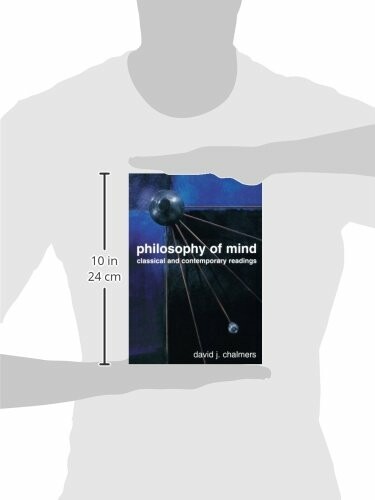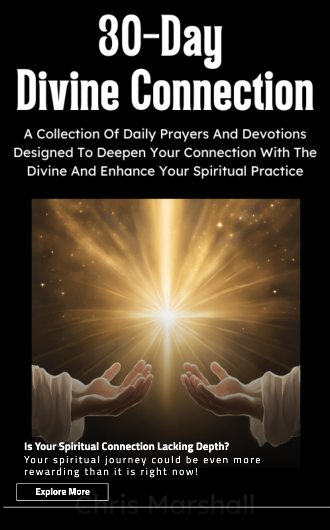Exploring the Philosophy of Mind: Insights from Classical and Contemporary Readings
Key Takeaways
- A comprehensive anthology of philosophical texts.
- Includes both classical and contemporary readings.
- Ideal for anyone interested in consciousness and thought.
Delve into the intriguing world of consciousness with "Philosophy of Mind: Classical and Contemporary Readings," edited by David J. Chalmers. This essential collection offers a rich tapestry of ideas that span the spectrum of philosophical thought, making it a pivotal resource for both students and enthusiasts alike.
This anthology not only ignites curiosity but also invites readers to engage deeply with the critical discussions surrounding the mind and its place in the universe. If you seek to expand your knowledge in philosophy, this book is a must-have addition to your library.
About Philosophy of Mind
"Philosophy of Mind: Classical and Contemporary Readings" is a meticulously curated anthology that serves as an essential guide for anyone intrigued by the complexities of consciousness. Edited by renowned philosopher David J. Chalmers, this book brings together a diverse array of essays from both historical and modern thinkers, offering insights into the ongoing discourse surrounding the nature of the mind.
Key Features
- Comprehensive Anthology: This collection includes foundational texts as well as contemporary essays, making it suitable for a broad audience.
- Diverse Perspectives: Readers will encounter various philosophical views on consciousness, thought, and the mind-body connection.
- Accessible Format: The book is organized in a way that makes complex ideas more digestible for readers at all levels.
- Engaging Content: With contributions from some of the leading philosophers in the field, the material is both thought-provoking and engaging.
The design of the book is both aesthetically pleasing and practical, featuring a clean layout that enhances readability. The paperback format ensures durability, making it a reliable addition to any bookshelf.
Performance and Usability
Readers can expect an enlightening experience as they navigate through the chapters, each filled with rich philosophical inquiries. The user interface is straightforward, allowing for easy access to key concepts and discussions. Additionally, the book includes a comprehensive index, making it simple for readers to locate specific topics or philosophers they wish to explore.
Ideal Use Cases
This anthology is perfect for:
- Students seeking to deepen their understanding of philosophical concepts.
- Philosophy enthusiasts looking for a broad perspective on the mind.
- Educators and instructors who wish to incorporate diverse readings into their curriculum.
Whether you are just beginning to explore the philosophical landscape or you are a seasoned scholar, "Philosophy of Mind" offers valuable insights that enrich your understanding of consciousness.
 Check Current Price
Check Current Price
Pros and Cons of Philosophy of Mind
Pros
- Comprehensive collection of classical and contemporary readings.
- Diverse perspectives from leading philosophers enhance understanding.
- Accessible format makes complex philosophical ideas easier to grasp.
- Engaging content that invites deep thought and discussion.
- Durable paperback design suitable for long-term use.
Cons
- Some essays may be challenging for beginners.
- Limited illustrations or visual aids to accompany the text.
- Occasional dense passages may require multiple readings.
Overall, "Philosophy of Mind: Classical and Contemporary Readings" stands out as a valuable anthology that balances depth and accessibility, making it a worthwhile addition for anyone interested in exploring the intricacies of consciousness and thought.
Final Thoughts on the Philosophy of Mind Anthology
When considering the purchase of a philosophical anthology like Philosophy of Mind: Classical and Contemporary Readings, there are several key factors to keep in mind:
Tips for Buyers
- Assess Your Level: Understand your familiarity with philosophy to choose texts that match your background.
- Diversity of Perspectives: Look for anthologies that present a range of philosophical views to enrich your understanding.
- Read Reviews: Check for insights from other readers to gauge the value and accessibility of the content.
- Consider Format: Decide if you prefer a paperback for durability or a digital version for convenience.
- Common Mistakes: Avoid picking a book solely based on its popularity; ensure it aligns with your interests.
In summary, Philosophy of Mind provides a comprehensive exploration of consciousness through classical and contemporary readings. The benefits of this anthology include its diverse perspectives, accessibility, and engaging content. However, potential drawbacks such as challenging essays for beginners and occasional dense passages should be considered.
Overall, this anthology is highly recommended for anyone looking to delve deeper into philosophical inquiries about the mind. Its well-rounded approach makes it a valuable addition to your collection, whether you are a novice or an experienced philosopher.
For those interested in further expanding their knowledge, consider exploring other related categories such as Philosophical Texts or Mindfulness Techniques that can complement your journey into philosophy and mindfulness.
Check Current PriceYour Queries Answered: Philosophy of Mind FAQs
-
Q: Can this book help with understanding **different philosophical perspectives**?
A: Yes, the anthology includes **various readings** from both classical and contemporary philosophers, providing a wide range of insights.
-
Q: Is the **content suitable for beginners** in philosophy?
A: While some essays may be **challenging**, the organization of the book aims to make complex ideas more accessible.
-
Q: Does it cover **modern theories** of consciousness?
A: Absolutely, the collection features **contemporary essays** alongside classical works, reflecting current discussions in the field.
-
Q: How is the **layout and design** of the book?
A: The book boasts a **clean layout**, enhancing readability and making it easier for readers to navigate through the material.
-
Q: Are there **visual aids** included in the book?
A: The anthology primarily focuses on text, so it has **limited illustrations** or visual aids to accompany the readings.













